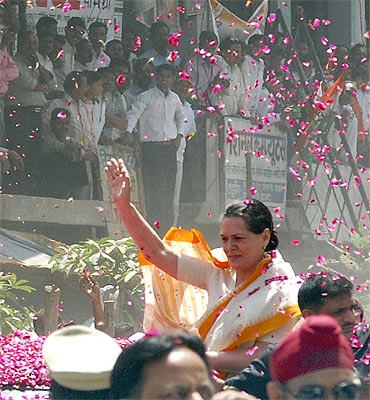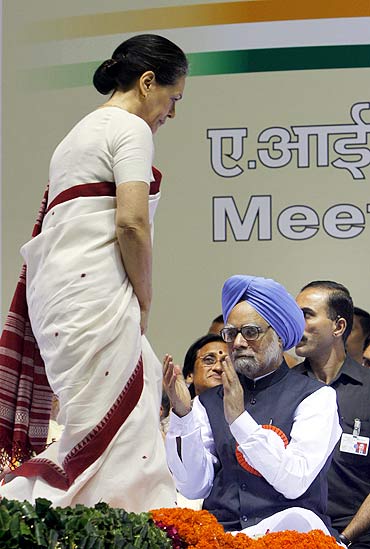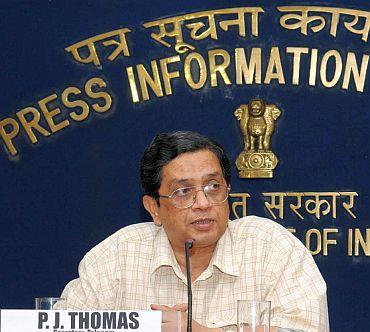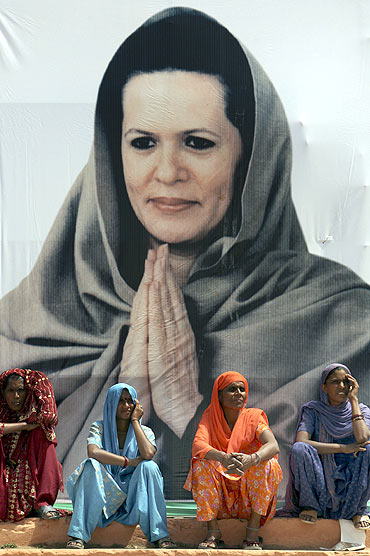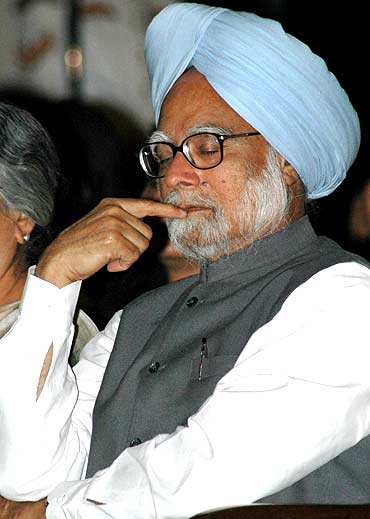 | « Back to article | Print this article |
Sonia should be quizzed about 2G scam, CVC row
The assumption that Sonia Gandhi can do no wrong has to be challenged by the public, the media and the political class, says B Raman
Sonia Gandhi can do no wrong.
That seems to be the basic assumption in the current debate on the various controversial decisions taken by the government of Prime Minister Manmohan Singh since it was formed after the elections of 2009.
These include decisions related to the questionable functioning of the ministry of telecommunications or the wrongful appointment of someone facing a probe to the post of the chief vigilance commissioner.
In all the debates in public -- whether in the media or by political parties -- the focus has been on the role of the prime minister, other concerned ministers and bureaucrats. I watched with interest the debate on various TV channels about the adverse judgment of a bench of the Supreme Court in the case regarding the procedure followed for the appointment of PJ Thomas as the chief vigilance commissioner.
Were these decisions taken only by the government?
The eminent people who participated in the debates, as well as the TV anchors, focussed only on the role of the various personalities in the government from the prime minister downwards.
Not one of them mentioned even in passing the possible role of Sonia Gandhi -- as the leader of Congress party -- in these controversial decisions. Even the spokespersons of opposition parties, including the Bharatiya Janata Party, did not mention her name in their interventions.
Does this mean all these controversial decisions were taken only by the government, with the Congress leadership playing no role in it? Any objective analyst would find it difficult to accept this.
An unseen but unquestioned power
We have been subjected to a peculiar system of governance since 2004 where real power seems to be wielded by Sonia Gandhi in her capacity as the head of the Congress party.
There has been an unseen but unquestioned power which has been exercising a compulsive influence on decision-making in important matters. This compulsive influence is quite evident in the case of the appointment of the chief vigilance commissioner.
Whether in matters related to his appointment or the defence of his appointment before the Supreme Court, everyone from the prime minister downwards has been acting as if they were doing so at the instance of an invisible force that could not be resisted. Such an invisible force could be only that of Sonia Gandhi.
Everyone behaves as if she is like the British monarch
She has been conducting herself as a neutral, disinterested bystander, who had nothing to do with any of these decisions. She has not spoken on any of these decisions in any great detail, nor has she been questioned.
Everyone, including the media and even the opposition, has been behaving as if she is like the British monarch, above and beyond all controversies. Hence, she cannot be questioned about her role in them.
If one has to find out the real truth behind the recent controversies, it is as important to probe her role in them as it is to go into the role of others. The assumption that Sonia Gandhi can do no wrong has to be challenged by the public, the media and the political class.
The JPC should summon her
She must be made to face the fire of criticism and questioning like any other leader. She should no longer be treated as if she is a morally superior person whose good faith and integrity have to be implicitly accepted.
It is important for the Joint Parliamentary Committee -- now being constituted to probe the 2G scam -- to summon her and question her in detail about the various controversies. It is equally important for her role in decision-making to be debated in Parliament, in the media and elsewhere. She should herself welcome a greater public focus on her role and influence in decision-making.
